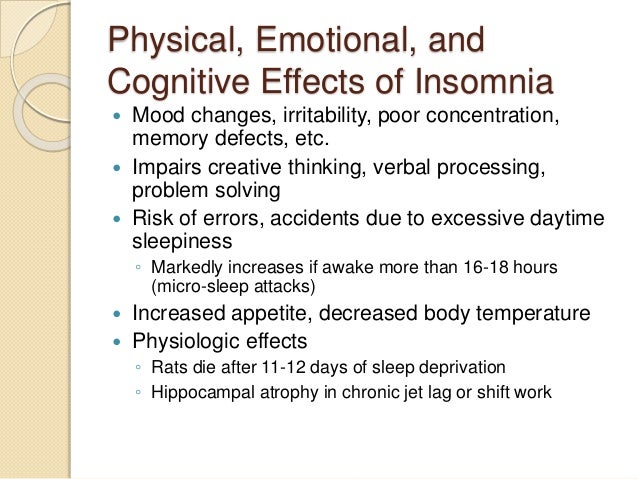Chronic Sleeplessness
Chronic Sleeplessness. Insomnia is a sleep condition that involves difficulty falling asleep and staying asleep. There are many possible causes of excessive daytime sleepiness.

Although 15 percent of canadians report living with sleeplessness, the area of research does not generate enough interest in the public health realm, says atkinson. [9] [11] insomnia is typically followed by daytime sleepiness, low energy, irritability , and a depressed mood. What are the types of insomnia?
Insomnia Can Come And Go, Or It May Be An Ongoing, Longstanding Issue.
Difficulty falling asleep and/or waking up in the middle of the night. In the short term, a lack of adequate sleep can affect judgment, mood, ability to learn and retain information, and may increase the risk of serious accidents and injury. Insomnia is a sleep condition that involves difficulty falling asleep and staying asleep.
They May Have Difficulty Falling Asleep, Or Staying Asleep As Long As Desired.
Chronic obstructive pulmonary disease (copd) asthma; [9] [11] insomnia is typically followed by daytime sleepiness, low energy, irritability , and a depressed mood. Problems with concentration or memory.
What Are The Types Of Insomnia?
To better understand your sleeplessness, let’s do a little exercise. Insomnia, also known as sleeplessness, is a sleep disorder in which people have trouble sleeping. Still, it illustrates a typical process of how chronic insomnia develops.
Insomnia Still Remains What He Calls An Invisible Disability.
If you have trouble falling asleep for more than three nights a week for a significant time period, you may have chronic insomnia. The chronic sleep disruption of insomnia appears to be a major trigger for depression and irritability. Feeling tired/fatigued during the daytime.
There Are Many Different Reasons Why Chronic Sleeplessness Might Be A Problem For You.
Although 15 percent of canadians report living with sleeplessness, the area of research does not generate enough interest in the public health realm, says atkinson. But if someone struggles to fall. Have trouble getting to sleep or staying asleep more than three nights a week for three months or more is considered chronic insomnia.
Post a Comment for "Chronic Sleeplessness"